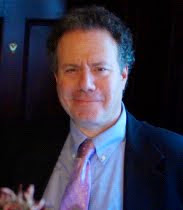Together
Five years ago, my entire family found itself together in one place for the last time. There is no sense in romanticizing the family gatherings we had for holidays; they were excruciating. My father was a man who always had something to say. He was vulgar, and if a woman, especially a young one—one of my sisters’ friends or my son’s girlfriend—were at the table, he could not help but make references to sex, scatology, or bodily functions. If it came into his mind, it had to be uttered. One time when he was trying to tell a story he’d told before and no one seemed to be listening to him, he stormed out of the room. We all let him, without protest, and this became one of our stories.
My son, on the contrary, never seemed to say much to me. There seemed always to be something on his mind. At these gatherings, most of our communications involved patting each other on the back. I guess that counts, but I am a man of many words. I had always envisaged profound, ongoing conversations with my son, precisely those I was unable to have with my father. Instead I would exist in a limbo between the silence of one and the drone of the other.
My wife found these gatherings to be nearly unbearable. She cared little for any member of my family, especially my son (not her child), and they returned the sentiments in kind. Fortunately, we lived nearby and had separate cars. Often, she would beg off, and would hardly be missed. I cannot quite judge whether it was better having her around, as a foil, or absent, as one less irritant.
My three sisters rarely argued with me, but now and then they would have what I like to call a “frank exchange of views” with each other, or with my mother. Other than the general stress and the difficulty of being in the same house as my father and mother, two things about these family gatherings at my parents’ house were especially disturbing to them. My mother had a way of destroying perfectly good food, usually by overcooking or under-seasoning, always due to a maddening failure to organize and attend. In addition, she kept poor sanitary habits in the kitchen and in the house in general. My sisters were not shy about letting their displeasure with this be known.
The house itself could cloy on you, suffocate you, make you yearn to flee. Every room would be crammed with books, papers, unread magazines, mismatched furniture. Lamps did not work, or if they did they would droop in the wrong direction. In one drawer would be a dozen locks without keys, in another two-dozen keys without locks. It would have been charitable to have called the pervading odor of that house “stale.” You could never ignore it, and you couldn’t get it out of your lungs when you left. The house was always damp, always dank, which is perhaps the reason I live in the desert now.
I was spurred to write this because I was about to review a culinary book based on the warmth and conviviality of another family’s mealtimes with each other. We hadn’t a shred of that, simply the solid fact that we were together. My father is now dead, my marriage is over, my son lives in Australia, I live two thousand miles away, we finally emptied the house, engineered its sale, and moved my mother to an apartment she can afford. My grief at losing my father has yet to present itself, I am happy no longer to be in a marriage that wasn’t working, I am thrilled that my son has a wonderful wife, career and lifestyle in Australia, and I am ecstatic that the house has finally been liquidated before an oak tree careens into it. I cannot argue with any of these things. Each in itself makes sense. But we were together.

